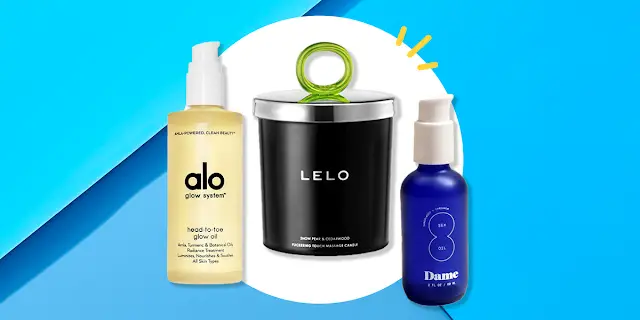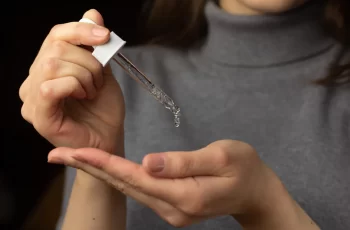
Can I use retinol during pregnancy?
It’s undeniable that pregnancy is an exciting time, but it can also be confusing most of the time. There are things you can’t eat, drink, or even use certain skincare products. Today we can help you with the latter, but before we get started, I just want to remind you of the importance of consulting your doctor or midwife so you can make sure you’re using the safest formula on your skin. We’ll continue to explore which ingredients you should use and which ingredients, such as B. Retinol, are best avoided.
What are the benefits of retinol?
Retinol is one of the most powerful ingredients in the beauty industry. This potent form of vitamin A is revered by skincare experts and offers an impressive list of skin benefits. Using a topical retinol product in your evening skincare routine will significantly improve your complexion. Here are some examples of the benefits you can expect.
Reduces the appearance of wrinkles, smooths skin and prevents the formation of further fine lines and wrinkles.
Accelerates skin cell turnover, helping to reveal new skin cells underneath for a radiant, bright and healthy complexion.
Minimizes the frequency of breakouts and blemishes while regulating sebum production on the surface of the skin.
Helps improve hyperpigmentation and dark spots caused by excessive UV radiation and other free radical damage.
If you want to learn more about retinol and its various benefits for the skin, read our dedicated blog post.
What happens if you use retinol during pregnancy?
Despite the fact that there is no clear evidence that topical retinol product derivatives cause birth defects, many still recommend avoiding retinol completely until your baby is born and you stop breastfeeding. This is because even products applied to the face can be absorbed into the bloodstream and pass through the placenta or into the baby during breastfeeding. The form of retinol that must be avoided at all costs is oral systemic retinol. Whether retinol is applied to the skin or ingested, all experts agree that avoiding any form of retinol is best to limit the risk of birth defects for the embryo and fetus.
When should you stop using retinol during pregnancy?
It is recommended to avoid any form of retinol during pregnancy. This is because there is still a lot to learn about the effects of retinol and other forms, such as B. Retinoids, and the effects on organs that may develop in the baby are not yet known. Depending on the strength of the formula, it is okay to use retinol between the fourth and ninth months of pregnancy. However, it is important to consult your doctor or dermatologist to determine which formula is best. To ensure that you stay safe during pregnancy and to ensure the safety and health of yourself and your baby, do not use products containing retinol on your skin without the approval of your primary care physician.
For more information on using retinol while breastfeeding, see our dedicated blog post on using retinol while breastfeeding.
Can I use vitamin C serum during pregnancy?
Yes, it is considered safe to use vitamin C serum during pregnancy. All you have to do is pay attention to how your skin reacts to the potent energy. This is because your skin type often changes during pregnancy. Some expecting mothers find that their skin becomes more sensitive and prone to redness. Therefore, always do a 24-hour patch test before applying any formula to your face.
Another benefit of using vitamin C is that one of the main benefits is its antioxidant properties and ability to fight dark spots and signs of hyperpigmentation. By combining these products, your skin tone will become even, radiant, and bright.
Which facial products should I avoid during pregnancy?
There are many facial products that must be avoided during pregnancy. You will find examples below.
Retinol Derivatives
As I mentioned before, there is still a lot that is unknown about retinol and its effects on the development of the baby. When looking for an over-the-counter formula, it is recommended to avoid any of the following products: Which contain ingredients such as retinyl acetate, retinyl palmitate, retinyl linoleate, and retinyl propionate.
Salicylic Acid
Salicylic acid is a very popular ingredient in skin care products and is found in a range of products from moisturizers and body washes to night serums. It is important to check the ingredients in the formula and choose products with lower levels of powerful BHAs to avoid unnecessary irritation and reactions.
Essential Oils
Although essential oils are completely natural, it is still recommended to limit the number of times they are applied to the skin. This is because there may be some side effects with regular use on the face, such as: B. Increased sensitivity to sun exposure and an increased risk of developing areas of hyperpigmentation and permanent skin damage.
Glycolic Acid
As one of the most commonly used AHAs, glycolic acid is recommended to be stored until the baby is safely delivered. However, this does not mean that all AHAs are bad. For example, lactic acid is much gentler than glycolic acid.
Here are some examples of some ingredients you should avoid. As I mentioned before, to be safe, always do a 24-hour patch test before applying anything to your face.
Here is more information on using retinol during pregnancy. Don’t forget to find us on Instagram if you have any additional questions.


